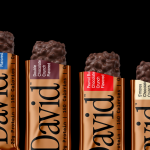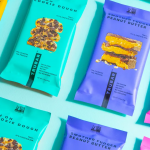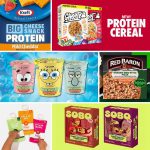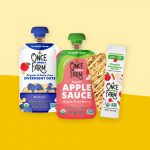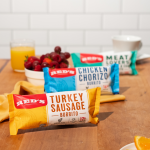Top NOSH Stories of 2020: Industry Adjusts to COVID-19 Challenges

The effects of COVID-19 on the many facets of the food industry was clearly a major theme throughout 2020, from the impact on food workers’ safety, supply chain disruption, cancelled trade shows and the shift to ecommerce. Despite the tepid investment landscape in the first half of the year as the industry grappled with these many changes and brands faced financial struggles, the latter portion of the year saw several notable deals and launches as the industry adjusted to the new reality the pandemic presented.

1. Expo West Approaching, Brands Weigh Coronavirus Fears
In late February, with fears regarding the COVID-19 pandemic beginning to build and Natural Products Expo West fast approaching, food companies considered the potential health and safety risks associated with attending the industry’s largest annual event drawing tens of thousands of attendees from over 100 countries.
As large events across the globe, from Fashion Week to the Mobile World Congress, were cancelled or moved online, many brands made the choice not to attend out of concern for the health of their employees as the first signs of community spread of COVID-19 was identified in the U.S. Multinational companies such as Nestlé and Unilever were the first to cancel their plans to attend, followed by a flurry of smaller brands, before New Hope ultimately cancelled the event the following week.
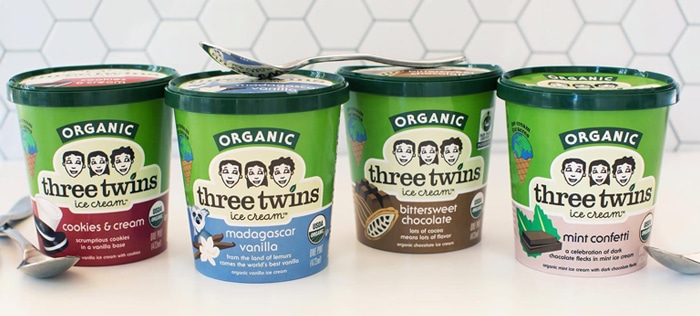
2. Three Twins Founder on Closing: ‘We Made the Wrong Bet’
After over a decade in business, organic ice cream company Three Twins announced its closing in April. Founder Neal Gottlieb told NOSH he attributed the decision to close the business to margin issues and poor product choices.
Gottlieb said the company’s pints were priced at an $5, a price too low to sustain without efficiencies of scale, and that subsequent halted growth increased these margin pressures. The company also felt the effects of unsuccessful product launches. In 2017, it released Slim Twin, a low calorie pint aimed to compete with Halo Top, that ultimately took away shelf pace from and had slower turns than its core offerings. The company received a similar tepid consumer response to its sub-brand Maxine’s, sold in lower priced 1.5 quart tubs. Gottlieb also attributed the company’s issues to the struggling organic ice cream subset, which has yet to see the wide adoption that other organic dairy products have, as well as competition from the plant-based frozen dessert category.
Though he’d hoped for a “last minute save” through an investor meeting during this year’s Expo West, the cancellation of the event and the conservative investment landscape that followed led Gottlieb to realize closing was his only option.

3. Carla Vernon Departs General Mills
In April, General Mills senior executive Carla Vernón announced her departure from the company, where she led the Annie’s brand and the company’s natural and organic division. Vernón first joined the company in 1998 as an associate marketing manager for Honey Nut Cheerios, and held roles at Yoplait before becoming VP and business unit director for snacks from 2015 to 2016, where she oversaw brands such as Nature Valley bars and Fiber One snacks.
She was promoted to her most recent position after longtime Annie’s CEO John Foraker left General Mills in 2017 to run infant food startup Once Upon a Farm. General Mills became the second largest branded natural and organic food producer in the U.S. during her time as president of its natural & organic operating unit. Vernón had also become a champion for diversity within the industry in recent years, speaking out about the need for more diverse founders and leaders.
While the role of president no longer exists, Emily Thomas was been prompted to the new role of VP, managing director of natural and organic.

4. Brands Grapple With Coronavirus Conundrum at Expo West
Just days after major multinational corporations like Nestlé and Unilever made the decision not to attend Expo West, many retailers such as Whole Foods and Kroger also began to cancel their plans to attend. After days of discussion on Linkedin threads, over 300 brands subsequently made the decision to pull out as participation in the event became harder to justify, despite the sunken costs.
Days before the show, New Hope had stated that it expected a 40% to 60% decrease in attendance, and was faced with a “polarity of responses” regarding whether to cancel or proceed with the trade show. Despite New Hope’s promise of increased sanitation precautions, the quickly climbing number of COVID-19 cases — as well as the first deaths from the virus in the country — led to a significant wave of brands, retailers and investors pulling out of the show. Several hours after this story’s publication, and just two days before the show, New Hope announced that Expo West 2020 was postponed and then eventually cancelled.
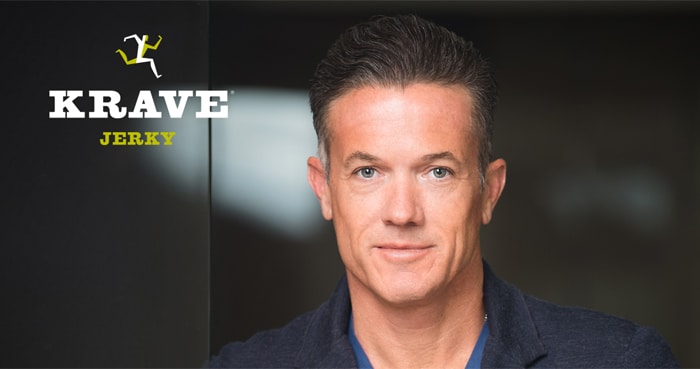
5. KRAVE Returns Home With Sale to Sebastiani’s Sonoma Brands
In May, Sonoma Brands, the snack brand holding company and investment group founded by Jon Sebastiani, announced the acquisition of meat snack brand KRAVE, which Sebastiani had previously built and sold to The Hershey Company in 2015. KRAVE now exists under Double Peak, a new holding company with Kevin Murphy, Sonoma Brands’ managing director, serving as executive chairman.
Sebastiani told NOSH the price of the deal was less than the $220 million Hershey bought the brand for in 2015. He said he aimed to refresh the brand which had struggled under Hershey’s ownership, with eventual plans for another sale. These plans include rolling out lower sugar offerings, new flavors and updated messaging in order to stand out amid the growing meat snack category.
“We know there continues to be growth in this category and that across all sectors consumers are continuing to trade up to more premium brands,” Sebastiani said. “We plan to fix quality, we plan to get back on the innovation pipeline and I think in a year or so, KRAVE will have reestablished itself as the premium brand in the marketplace.”
Sonoma Brands went on to later acquire jerky brand Chef’s Cut in July.

6. Expo West: “What’s Next?” Looms Large
Following the postponement — and eventual cancellation — of Expo West 2020, New Hope aimed to answer the question posed by thousands of would-be attendees: “What’s next?”
Though New Hope initially announced plans to hold the event this summer, the unpredictability of the pandemic made planning for a new event difficult, especially as the event typically takes 12 to 24 months to organize. The National Confectioners’ Association’s Sweets and Snacks show also postponed and eventually cancelled its 2020 iteration, which would be followed by the majority of the industry’s main events throughout the year.
For entrepreneurs and small brands planning to attend Expo West which were hit hard financially by the cancellation, New Hope announced a $5 million reimbursement fund.
“New Hope—with the support of our parent company, Informa—intends to work with all our exhibitors and attendees on future credits and support, with a particular focus on the many exhibiting entrepreneurs and small businesses who are the heartbeat of this community,” the statement said. “We are working through what this will look like for each of our exhibitors or attendees, and we are committed to listening to you as we determine next steps.”
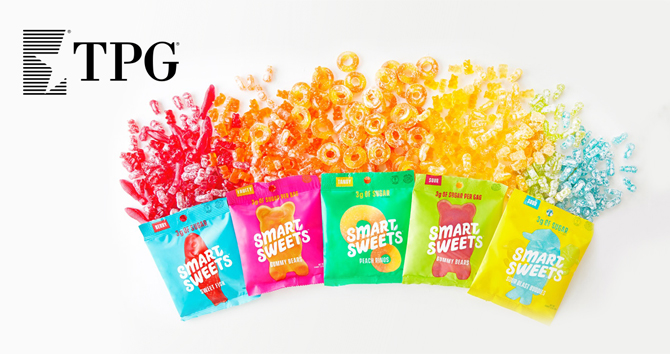
7. Smart Money: SmartSweets Sells to TPG, Brings on New CEO
Low-sugar candy brand SmartSweets announced in October it had sold a majority share to TPG Growth Fund in a $360 million deal. Founder Tara Bosch stepped down as CEO as part of the deal, with former Voortman Bakery CEO Douglas MacFarlane taking over the role.
SmartSweets posted significant growth over its four years in business, reaching profitability two years in and doubling sales over the last year, with its line of gummies and chews on shelves at over 25,000 retailers. The company raised $3 million in 2018 but Bosch told NOSH the company largely financed its growth through debt financing. She said the sale to TPG was aimed at continuing to accelerate the brand’s growth.
“From day one the vision I’ve always had is to be the global leader in revolutionizing candy,” Bosch said. “It really felt like the right time for a meaningful growth partner in order to have the rocket fuel to really put behind our mission to kick sugar and really amplify it in an accelerated pace with more resources than we’ve ever had before.”
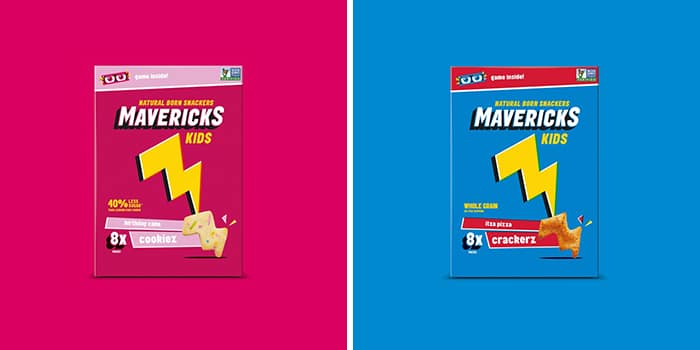
8. Hippeas Producer To Launch Two New Snack Brands
Hippeas producer Green Park Brands announced plans in March to move into crackers, cookies and confection with the launch of two new food brands: Maverick Snacks and CO Chocolate.
Maverick Snacks debuted 8-packs of single-serving bags of low sugar cookies and whole grain crackers at Whole Foods nationwide, targeting popular kids snack brands Goldfish and Chips Ahoy with better-for-you offerings. The brand initially launched in the U.K. in early 2019 with five products but ultimately ceased operations abroad as the team saw stronger potential for the brand in the U.S. with trimmed down offerings. President and general manager Christian Quie said the brand would follow a retail strategy similar to that of Hippeas.
CO, a sugar-free plant-based chocolate brand, offered its product in “stackable” discs of white, dark and milk chocolate coated in a variety of flavors. Though set to roll out in May, the brand has yet to launch and general manager Joanne Bolona departed Green Park in July, taking on the role of Head of U.S. sales for Tony’s Chocoloney.

9. FDA Issues COVID-19 Food Safety and Manufacturing Updates
The U.S. Food and Drug Administration (FDA) in March released guidance to address COVID-19 concerns within the food industry. In a stakeholder call, Frank Yiannas, deputy commissioner of the Office of Food Policy and Response, said that “the U.S. food supply remains safe, there are no shortages [and] there is no evidence of food or food packaging being associated with the transmission of COVID-19.”
Despite this, the FDA did adjust some regulations to ensure safety and efficiency in the food system during the pandemic, urging the industry to follow guidance from the Centers for Disease Control and Prevention (CDC) and announcing protocols to prevent person-to-person contact between FDA employees and food industry workers. The FDA also placed a hold on forign and domestic inspections and Food Safety Modernization Act (FSMA) supplier inspections.
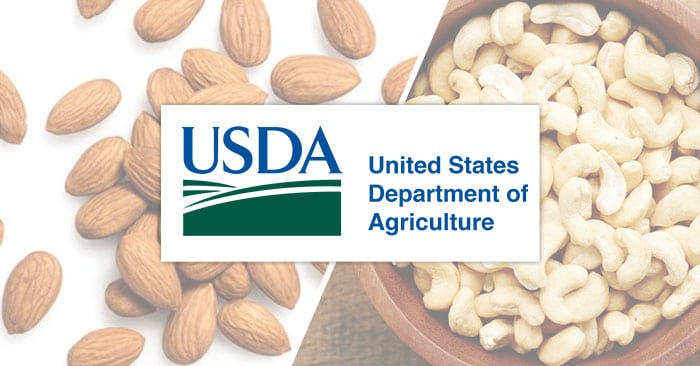
10. Nut-based Brands May Adjust Calorie Counts After USDA Research
The United States Department of Agriculture (USDA) Agricultural Research Service (ARS) in January announced that, according to studies conducted over the last eight years almonds, cashews, pistachios and walnuts all contain fewer calories than previously reported. As a result of this discovery, the FDA announced it would allow brands with nut-based products to potentially update their nutrition labels with lower calorie counts.
Whole unroasted and roasted almonds have 19% to 25% fewer calories than originally thought, while whole roasted cashews have 16% fewer calories, reported David J. Baer, PhD, an ARS research leader who co-led the studies. While the previous calorie counts were determined using a method for calorie calculation that informs most of the data on nutrition labels, the method proved to be inaccurate for hard-to-digest foods such as nuts.
While the Food and Drug Administration enforces product labeling requirements, it said it wouldn’t specifically regulate nut content based on the new findings, so the decision to update labels has been left up to individual brands. KIND Snacks released updated labels for its nut bars in retail soon after the announcement.


